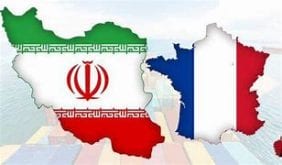Radiofarda – Thirty-one years after the disastrous Iran-Iraq war (1980-88), vouchers and coupons to procure essential goods might be on their way back for the people of Iran.
Without elaborating on the details, the Islamic Republic Vice President Es’haq Jahangiri said on Saturday, May 4, “Some goods might be rationed and distributed through vouchers or coupons.”
Under new U.S. sanctions imposed on the Islamic Republic, the role of the government might become more highlighted, the state-run Iran Students News Agency (ISNA) cited Jahangiri as saying.
“We might be forced to ration some goods and reintroduce vouchers for distributing them,” Jahangiri divulged.
However, Jahangiri admitted that some economic experts and businesses are against issuing vouchers goods arguing that it would lead to more government interference in the country’s markets.SEE ALSO:
Subsidies Will Cost Iran $63.7 Billion In 12 Months
“They believe that in our current difficult situation rationing goods is not only irrational, but more open [competition] is necessary,” Jahangiri noted, adding, “They also believe that, instead of rationing goods, the indirect government subsidies should be eliminated and directly paid to the people along with the cash monthly subsidies they currently receive.”
The state subsidizes many essential goods and specially fuel, to the tune of more than $60 billion annually. In addition, every Iranian receives a small monthly cash handout from the government; a legacy of the populist former president Mahmoud Ahmadinejad.
Iran’s parliament has already inserted an article in its budget bill stipulating that essential goods can be distributed among the people through electronic vouchers.
The Governor of Central Bank of Iran (CBI), Abdolnasser Hemmati, also confirmed on April 14 that electronic coupons or vouchers have been prepared but the date for their circulation should be decided by the government.
Rationing goods and distribution through coupons is reminiscent of the long years of war between Iran and its western neighbor, Iraq. Many foodstuffs, including meat, rice, and sugar were rationed and distributed through coupons.
People remember the 1980s as the “coupon era” when they used to line-up in long queues to procure eggs or butter. These are bad memories for many Iranians who suffered the deadly and devastating eight-year war with Iraq that left more than two million dead and wounded on both sides.
It took years after the war for the government to end the era of rationing essential goods with special coupons.SEE ALSO:
Iran’s Economy In 2018: Pressure Of Sanctions And Fear of Recurrent Unrest
Nevertheless, in late 2018, President Hassan Rouhani’s Administration was once again forced to distribute a financial “support package” across Iran to compensate for the damaging economic effects of Washington’s sanctions imposed on the Islamic Republic.
On November 19, 2018, President Hassan Rouhani was quoted as saying, “Support packages of one-three million rials (approximately $23.75 to $71.25) are on their way; the exact amount will depend on the circumstances of each family, but they will be given out to targeted groups, shortly.”
The dollar amounts cited here are based on the official exchange rate, which has little relevance to rising prices. If the packages Rouhani mentioned are priced based on the open market rate for the dollar, the value would be closer to $7-21; or food for just a few days.
The financial support will be directly deposited in people’s bank accounts, but they are not allowed to cash it; since it is solely for buying essential goods (foodstuff).
Washington’s withdrawal from Joint Comprehensive Plan of Action (JCPOA) or Tehran’s nuclear deal with world powers, and re-imposition of the U.S. sanctions on the Islamic Republic, have led to the dramatic downfall of the value of Iran’s national currency rial, followed by the insolvency of numerous industrial units, and skyrocketing prices.
Some goods, including pampers, became so scarce in the Iranian market that people were deprived of having access to it for months. The scarcity was so shocking that the Islamic Republic Supreme Leader, Ayatollah Ali Khamenei, personally stepped in and attributed it to the “hostile foreign countries’ plot” against the people of Iran.
Meanwhile, there have been reports in recent months of people lining up in long queues for procuring subsidized meat and chicken.
 Shabtabnews In this dark night, I have lost my way – Arise from a corner, oh you the star of guidance.
Shabtabnews In this dark night, I have lost my way – Arise from a corner, oh you the star of guidance.


